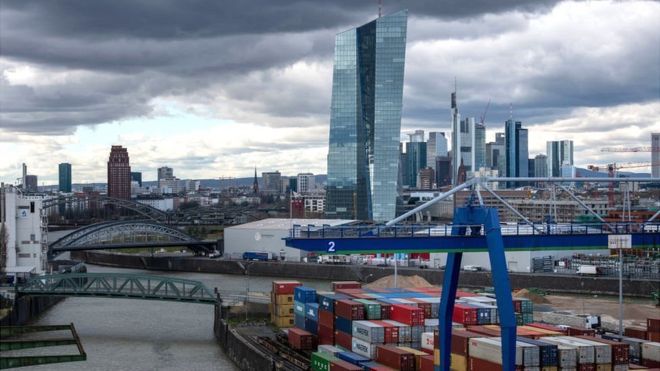
Concerns are becoming over the quality of Germany's economy - the biggest in the eurozone - following the arrival of progressively melancholy authority figures.
Modern generation in April fell by 1.9% contrasted and the earlier month and fares were 0.5% lower than a year sooner.
Then new figures from the national bank, the Bundesbank, mirror the more downbeat prospects.
The bank is currently foreseeing development of only 0.6% during the current year, contrasted and a conjecture of 1.6% it made in December.
The Bundesbank really predicts a little decrease in financial movement in the present quarter, however it anticipates that development should ricochet back to some degree one year from now to 1.2%.
Exchange debates
Germany is particularly presented to the vulnerability that is influencing universal exchange.
It is an assembling powerhouse and sells a huge offer of what it creates abroad. Just the a lot bigger economies of the United States and China send out more products.
China's financial log jam has transformed Germany. It is a significant market for German industry
There is likewise what the Bundesbank calls a "quieted standpoint" for exchange all the more for the most part.
The bank says questions are burdening worldwide business.
That is a reference to the strategies sought after by the Trump organization. Europe has been influenced by the duties on steel and aluminum which the US forced in light of the fact that, the US organization contended, imports of the metals were undermining national security.
Germany particularly will be uncovered if the US chooses to force extra duties on vehicle imports, something President Trump is thinking about.
There is additionally a more extensive effect on certainty about universal exchange coming about because of the duty builds that the US and China have forced on each other.
US occupations development in stun May lull
World Bank cautions of more fragile worldwide development
Rate cuts seemingly within easy reach?
These mists over Germany were somewhat thought about in moves made Thursday by the European Central Bank (ECB).
The ECB showed that its ultra-low financing costs are probably going to stay set up until in any event mid-2020, six months longer than the direction it had given beforehand.
A few individuals from the ECB's policymaking board additionally raised the likelihood of further cuts in loan fees or a resumption of the bank's quantitative facilitating program, purchasing monetary resources with recently made cash.
The Bank's leader, Mario Draghi, said that the likelihood of a subsidence was exceptionally low. His clarification for the moves concentrated more on the eurozone's industriously low expansion, which is presently beneath the Bank's objective of underneath, yet near, 2%.
It merits recalling that Germany has extremely low joblessness - nearly the most minimal of the created economies.
So, it doesn't look good for the eurozone all the more broadly that its biggest economy is having a frail fix.
Comments
Post a Comment